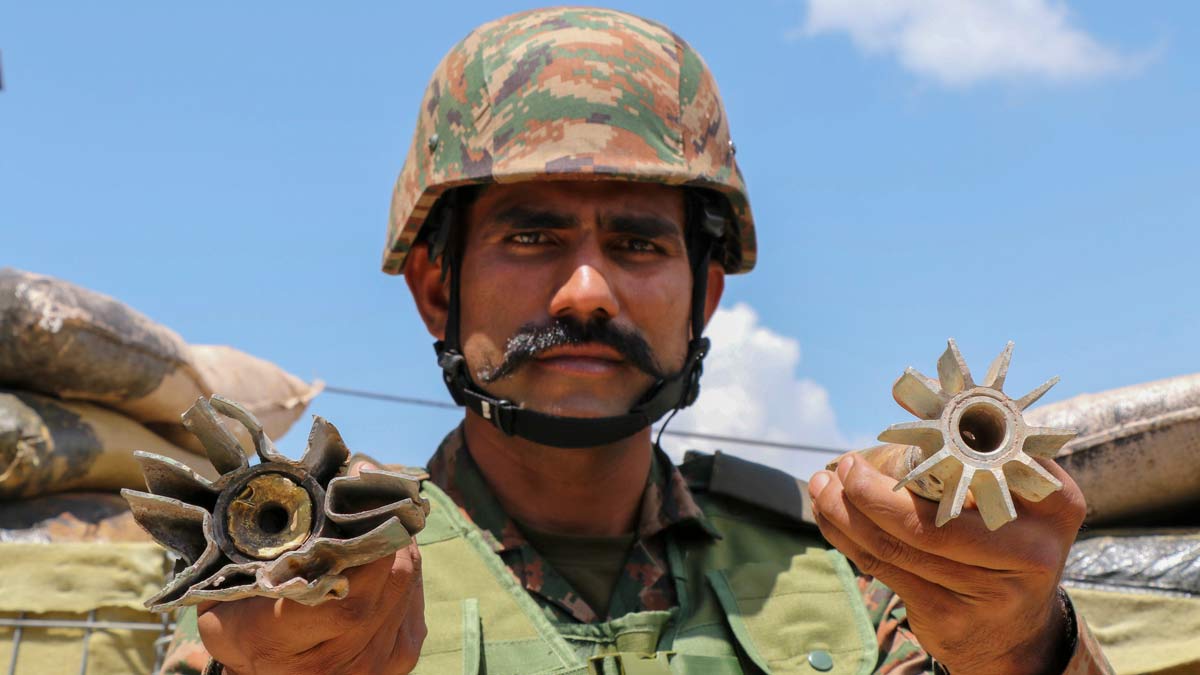After India-Pakistan ceasefire, Army begins to remove unexploded shells from border areas
 An Army personnel displays parts of shells recovered after the recent India-Pakistan military standoff, during a media tour, near Poonch, J&K | PTI
An Army personnel displays parts of shells recovered after the recent India-Pakistan military standoff, during a media tour, near Poonch, J&K | PTI
After the ceasefire between India and Pakistan, the Indian Army is moving quickly to remove unexploded ordnance (shells) fired from Pakistan in villages near the Line of Control (LoC) and International Border (IB) to protect the lives of people living in these areas.
The four-day confrontation between the two countries happened after Operation Sindoor, which India launched in response to the April 22 Pahalgam attack.
During the confrontation, more than 20 people, including six security personnel, were killed in Uri (Baramulla district) and Poonch and Rajouri (Jammu region).
Poonch district suffered the most. Thirteen civilians were killed there, including two 12-year-old twins—a brother and sister. Dozens of others were injured, and over 200 houses and other buildings were damaged.
The violence forced hundreds of people to leave their homes. Some took shelter in government relief camps, while others stayed with relatives. After the fighting stopped, many returned home, only to find unexploded shells lying in fields, near roads, and around their houses, posing a serious threat to their safety.
In Dara Bagyal village, close to the LoC, one such live shell was found near a road often used by locals. Villagers spotted it and quickly informed the authorities. The Army's bomb squad arrived promptly, secured the area, and safely defused the shell before carrying out a controlled explosion.
Similar operations took place in the villages of Jhullas, Salotri, Dharati, and Salani, where many unexploded shells were recovered and destroyed.
Bomb disposal teams are now fully active across the area to ensure no dangerous items remain. The Army says this effort reflects its strong commitment to protecting civilians and helping restore normal life in these conflict-hit zones.
People in border areas have resumed normal life, but the trauma of seeing their homes destroyed is unlikely to end anytime soon. The government has promised to provide financial assistance to those whose properties have been damaged or destroyed after completing the damage assessment.
India